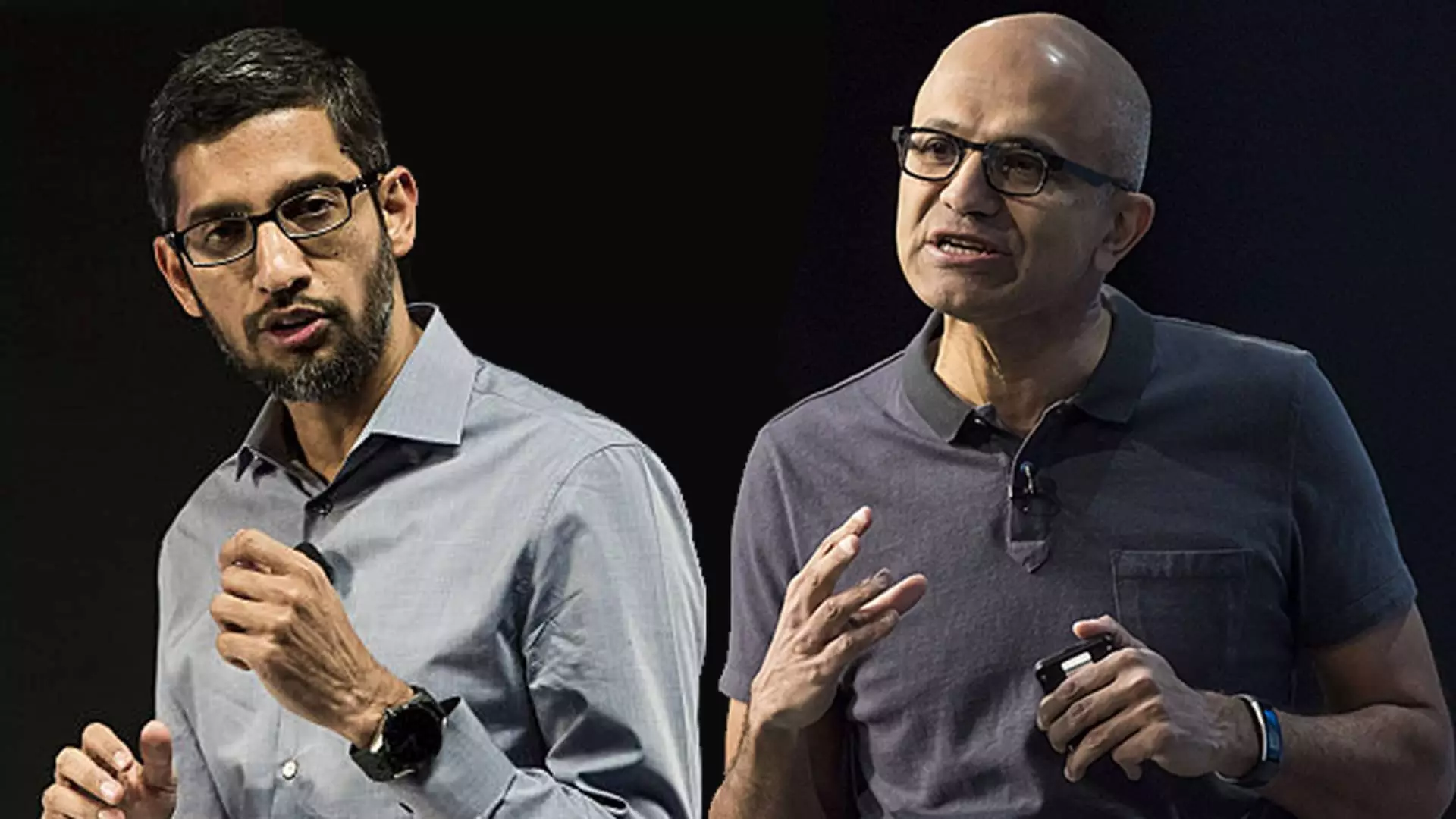In an age where technology is an integral part of both business and daily life, the rivalry between Microsoft and Google has reached new heights. On a recent Monday, Microsoft made bold accusations against its long-time adversary, claiming that Google was orchestrating clandestine campaigns in Europe aimed at tarnishing Microsoft’s image with regulatory bodies. This public confrontation unveils not just animosity but also profound implications for the cloud computing sector, an area that both firms are fiercely competing in.
Microsoft’s lawyer, Rima Alaily, authored a blog post that meticulously outlined the alleged tactics employed by Google. She asserted that Google transformed its competitive strategies into what she described as “shadow campaigns,” which are essentially backdoor maneuvers designed to steer public opinion and regulatory scrutiny against Microsoft. According to Alaily, Google hired the DGA Group, a consultancy firm, to bolster its efforts in forming an organization called the Open Cloud Coalition. This coalition purportedly brings forth a façade of grassroots advocacy for the cloud services market but is indisputably funded and manipulated by Google.
The essence of this tactic—astroturfing—raises ethical questions about transparency in competition. Alaily highlighted that the group’s supposed mission is to advocate for a fair cloud industry across the UK and EU, while simultaneously aiming to misrepresent Microsoft’s standing in cloud services. The complexities of this situation reveal how modern tech giants are willing to maneuver through legal loopholes and public relations battles to defend or advance their positions.
This unfolding drama occurs in a period of intensified scrutiny for Google, which is embroiled in significant antitrust challenges both in Europe and the United States. With Google facing its second antitrust trial initiated by the U.S. Justice Department, the stakes could not be higher. Alaily’s comments underscore Microsoft’s belief that Google is engaging in deceptive practices that contribute to an unfair market landscape. Google responded, framing their actions as legitimate concerns over Microsoft’s licensing strategies, which they argue create barriers to competition and damage innovation.
The juxtaposition of allegations—Microsoft accusing Google of unethical sabotage and Google charging Microsoft with anticompetitive behavior—positions this rivalry not merely as a corporate dispute but as a broader examination of market ethics. The irony that both companies are trying to position themselves as champions of innovation while simultaneously engaging in aggressive tactics points to a troubling trend in tech competition.
The cloud computing space is witnessing unprecedented growth, and competition among industry leaders shapes its future direction. Substantial claims like those made by Microsoft could impact how stakeholders view both companies and their services. Microsoft promotes the cost benefits of using its Windows Server on its Azure platform, claiming a significant reduction in expenses compared to alternatives like Amazon Web Services. Conversely, Google’s accusations against Microsoft concerning its cloud licensing could embolden regulatory actions that might upend Microsoft’s business model.
It is vital to consider how consumer trust and brand reputation are being impacted in this fray. The cloud services industry thrives on customer confidence; any erosion of that trust could lead to shifts in market share. Customers may begin to question whether their data is safe in Microsoft’s hands or if they will encounter restrictive practices should they decide to switch platforms.
As this conflict unfolds, both Microsoft and Google will inevitably have to navigate the complexities of public perception, regulatory responses, and competitive market pressures. While allegations fly, the question remains: how will these developments reshape the cloud industry and the dynamics between tech giants?
The path ahead may dictate a new standard for ethical competition in tech, one that holds companies accountable for their strategies in dealing with rivals. While the consequences of this corporate rivalry are providing a spectacle for industry watchers, the ultimate winners or losers will be customers and smaller players in the cloud marketplace who are watching these
battles unfold from the sidelines. Thus, as these giants continue their tug-of-war, it is imperative for all stakeholders to remain vigilant about the practices of these powerful entities.

